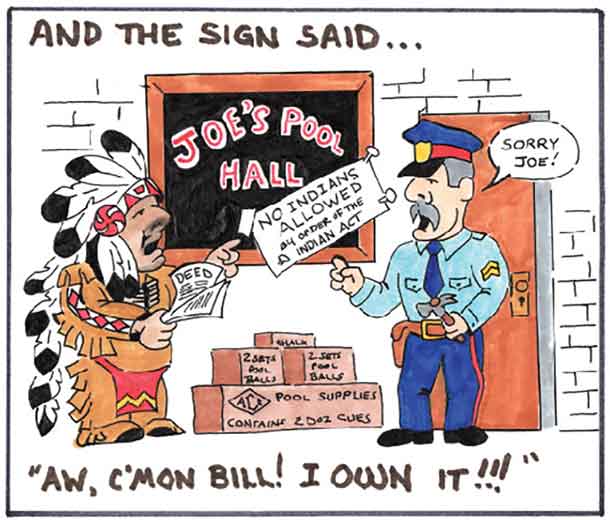
Wôlinak, Québec – The discrimination based on gender that Indian women and their descendants suffered from in the past concerning registration (“Indian status”) has continued to the present day and must cease, according to a decision from the Québec Superior Court handed down on August 3rd in Montréal.
Justice Chantal Masse gave the federal government 18 months to correct the relevant provisions concerning registration under the Indian Act, before they are declared invalid as an unjustifiable breach of the right to equality guaranteed by section 15 of the Canadian Charter of Rights and Freedoms.
“It must be reiterated that this situation had been allowed to continue for a bit more than 30 years, without a complete solution,” she wrote.
The Abenaki communities of Odanak and Wôlinak brought two different cases of discrimination suffered by their members before the court, discrimination the government must now correct.
- Susan Yantha’s case: a woman who is a registered Indian and who was born outside marriage before 1985 to an Indian father and a non-Indian mother cannot transmit status to her children – however, a son born of the same parents would have children entitled to be
- Stéphane Descheneaux’s case: an Indian born to a couple married before 1985, if his right to registration is based on an Indian grandmother who married a non- Indian man, cannot transmit status to his children – however, if an Indian’s right to status is based on an Indian grandfather who married a non-Indian woman, his or her children would be entitled to be
“Instead of appealing this judgment, the federal government should now work with First Nations to end the discrimination that it created,” declared Chief Denis Landry of Wôlinak.
Before 1985, Indian women lost their status if they married men without status and their children had no right to be registered as Indians. In 1985, the Indian Act was amended to give back status to the women who had lost it and to give status to their children. However, the British Columbia Court of Appeal ruled in 2009 in the McIvor case that continuing discrimination deprived the women’s grandchildren of Indian status. As a result, the Indian Act was amended again in 2010.
“We warned the government during the parliamentary committee hearings in 2010 that its bill would not put an end to all the cases of gender discrimination and now the Court has proved us right,” said Chief Landry.
According to Justice Masse, the government failed to consider the broader implications of the McIvor decision “by restricting them to their strict minimum,” which forced the Abenaki to litigate related issues of discrimination again.
The government has 30 days within which to appeal to the Québec Court of Appeal.






